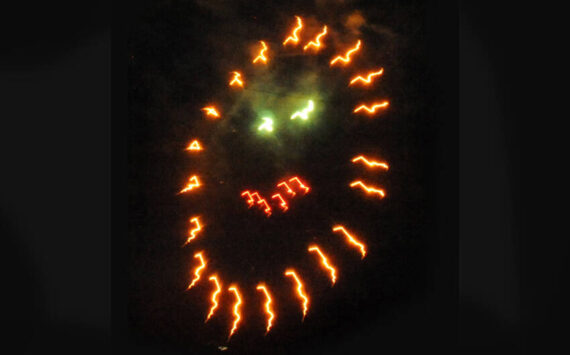By Aspen Anderson
WNPA News Service
Washingtonians may lose their cherished ultra-late-night sunsets in the summer if Washington state opts for permanent Pacific Standard Time (PST).
“If Congress had acted, we would not be here with this bill,” remarked Sen. Mike Padden, R-Spokane Valley.
The U.S. Senate, in March 2022, passed the Sunshine Protection Act of 2021 that would have made daylight saving permanent, but it has not been approved by the House.
The measure now under consideration in the Legislation would have Washington switch to permanent Pacific Standard Time with the stipulation that if the United States Congress adopts year-round DST, Washington state would switch.
Tired of waiting for action from the United States Congress on Washington’s 2019 proposal to adopt permanent daylight-saving time (DST), Padden urges the state to “Ditch the switch.”
“Spring forward, fall back. We have done that now, eight times, since we were here in 2019 and voted for year-round daylight time,” said Padden. “The House has not acted, and from all indications, has no intention of acting in the foreseeable future.”
Transitioning to full-time PST would mean sacrificing an hour of summer evening sunlight while maintaining the status quo in winters.
Padden argues that Washington’s biannual clock adjustments are detrimental to the health of Washingtonians.
Various medical and sleep organizations, including the American Academy of Sleep Medicine, the American Medical Association, the National Sleep Foundation, Sleep Research Society, and the Society for Research on Biological Rhythms, support the implementation of permanent PST.
Co-sponsor Manka Dhingra (D-Redmond) agrees it is time to stop switching times each year.
Under the Uniform Time Act passed in 1966, federal law prohibits states from observing DST year-round. However, states can opt out of daylight saving and adhere to permanent standard time.
If the bill passes, Washington would join Hawaii and Arizona in adopting permanent standard time.
Horacio de la Iglesia, biology professor at the University of Washington, testified in favor of the bill, providing expertise on sleep and circadian rhythms. Over the last decade, he researched Seattle residents’ sleep, studying how daylight influences their sleep quality.
“Standard time is our natural solar time,” said de la Iglesia. “That is very beneficial for us because humans still use daylight to align their sleep and daily activities. Particularly for Washingtonians, it’s highly beneficial to be in PST.”
Jay Pea, grandson of farmers and president of the nonprofit Save Standard Time, urges the Legislature to pass this bill.
“Standard time is the real time, defined as the sun’s position in the sky. Some call it God’s clock for its connection to nature,” Pea said. “It’s the best clock for our mental health, our physical health, our safety, our well-being, our productivity, the economy, and our children’s education. There is broad bipartisan consensus for this.”
Steve Calandrillo, law professor at the University of Washington, passionately pleaded for the Legislature not to pass this bill. Calandrillo studied DST for the past 20 years and testified in front of the U.S. Congress against permanent standard time.
“Right now, we have eight months of the year on DST, and four months of the year on standard time,” Calandrillo said. While he agrees with sleep specialists that living by the sun would be ideal, he said the reality is different with modern technology and home lighting.
“If you pass this bill, the sun is going to rise at 4 a.m. in June in Seattle. I don’t know very many people who wake up at 4 a.m. Right now in January, some of the darkest days of the year, the sun is setting at 4:30 p.m., and the hour right after that sunset from 4:30 to 5:30 is now two to three times as fatal for bicyclists, pedestrians, and drivers as it was before we went to the switch. Darkness kills, and darkness is two to three times more fatal at 5 p.m. than it is at 5 a.m.”
After Washington passed its original bill in 2019, California and Oregon have taken steps to align with Washington’s standard. Godlewski claims if Washington switches to Pacific standard time, it’s likely California and Oregon would follow.
Since 2019, 19 states have passed legislation in an attempt to adopt permanent daylight time, but Congress has not allowed the change.
“My preference and the preference of the Legislature would be to have year-round daylight time,” Padden said. “Unfortunately, that does not appear to be our choice because it requires Congress to act, and they have had four years.”
The Washington State Journal is a non-profit news website funded by the Washington Newspaper Publishers Association Foundation. Learn more at wastatejournal.org.






